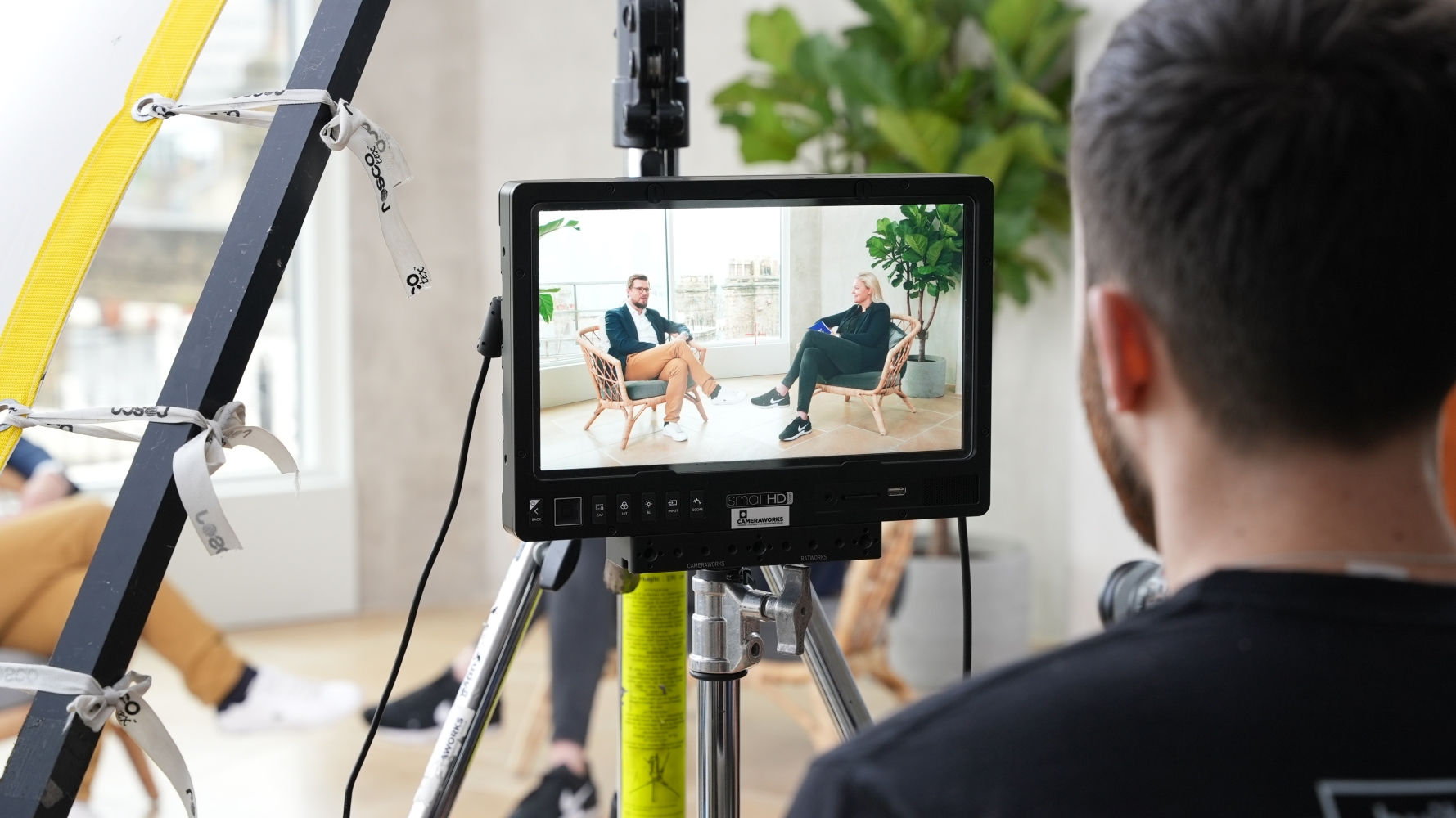Why Event Branding Matters & How to Create Immersive, Sustainable & On-Brand Events
From bold visuals to digital touch-points, effective event branding drives recognition, sparks emotion, and keeps your brand front of mind...

Live video is one of, if not the most engaging means of communication. Offering live interaction with your audience is a powerful way to strengthen your relationship with your followers and boost brand sentiment and authenticity.
Live-streaming to LinkedIn only launched in 2019, making it one of the newer members of the live-streaming ecosystem, but it offers a brilliant opportunity to speak directly to your professional audience.
Although LinkedIn Live hasn’t been around for too long, we’ve compiled a few of our top tips after our experiences with this social live stream channel, as well as using other social channels for live-streaming.
For advice on event live-streaming, check out our blogs ‘Live Streaming: The Basics, Benefits & Costs’ and ‘5 Event Live Streaming Mistakes’, and of course, if you would like to speak to one of our team about your project, please don’t hesitate to book in a call with us.
To start, only qualified LinkedIn pages and creators can stream. To check if you have access, start by creating an event on LinkedIn. Eligible broadcasters will be able to choose LinkedIn Live in the event format dropdown. If not, you can check again after 30 days. Have a look at this LinkedIn FAQ for more information.
Research your social channels to make sure LinkedIn is the right platform to make the highest impact with your content. Do you have a strong following on LinkedIn and is the content relevant for your audience? But keep in mind that you can also simulcast to multiple channels simultaneously to engage multiple audiences.
LinkedIn is a professional network, so make sure you consider why your audience is there and what type of content they are motivated to engage with and absorb. Unlike other social channels, LinkedIn users are typically motivated for business, professional, or career-related activities and not entertainment purposes. Panel discussions, conferences, recruitment campaigns, and product launches – especially B2B – are common content types, from our experience, on LinkedIn.
This is a great tool to schedule and manage your event from. You can invite people into the event, build a community, and create conversations with your attendees. Whatever you do, plan a marketing campaign to promote your event over your comms channels so people can get it in their diary well in advance.
Read up on the technicalities of running a LinkedIn Live, and the streaming tools (third-party broadcast tools), or get professional advice from your live production partner.
We’ve summarised a few key technicalities below, which your custom stream (RTMP) mustn’t exceed, especially the frames per second (FPS), otherwise, LinkedIn will not allow the stream to connect to its platform. There are a few links in this article by LinkedIn to help.
| Duration | max 4 hours |
| Aspect Ratio | 16:9 |
| Resolution | 720p-1080p (max) |
| Frame Rate | max 30 fps |
| Key Frame | every 2 seconds (60 frames) |
| Bitrate | video 3.5mbps-6 mbps (max), audio 128 kbps, audio sample rate 48 KHz |
| Encoding | H264 video, AAC audio |
| Protocol | RTMP |
Having the right bandwidth is key for streaming. For on-site encoding, a minimum of 10 mbps upload speed is needed.
Gone are the days when a choppy stream is forgiven. Test your equipment, and your bandwidth, and run technical and speaker briefings with all relevant stakeholders so they’re on point. However, do note that LinkedIn Live is public, so even when testing, people can see your video.
Make sure your event space is suitable for live-streaming and looks good on screen. Use green screen technology, if appropriate, to really elevate your live stream with a branded environment, or use custom branded assets to make your presentation shine.
Take a read of our blog about green screen technology for more information on how it works. And if you’re having an in-person audience too, check out Lumiere London or Unlocked for unique venues that will work well.
LinkedIn Live doesn’t have all the user-friendly functionality of an event platform, so for utilising the live engagement features – comments, questions, polls, and feedback – it is worth having another team member as an administrator of your page or event so they can keep an eye on the live engagement and feed it into the event.
LinkedIn Live is a brilliant communications channel to add to your event arsenal. With the right setup and know-how, which we hope this article will help with, it’s a great channel to utilise the many benefits of live-streaming to engage with your professional network where they are without the need to spend money on platforms and registration tools.
And if you need a hand positioning its utility internally, here are a couple of key figures that might help:
If you’d like advice on LinkedIn Live, or social and event live streaming, please get in touch with our team.
or
Designed and built by ONQOR.